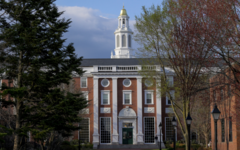In a high-stakes legal showdown, Harvard University has initiated a federal lawsuit against the Trump administration in a bid to halt a proposed $2.2 billion funding cut that the administration has threatened. This legal challenge follows an escalating confrontation between the university and the White House regarding diversity initiatives and alleged anti-Semitism on campus. Harvard’s president, Alan M. Garber, condemned the administration's actions in a letter, stating that the funding suspension would have profound repercussions on critical research efforts relating to severe health conditions like pediatric cancer and Alzheimer's disease.
In response, the White House issued a statement emphasizing that federal financial support should not be taken for granted and suggesting that Harvard's leadership had failed to meet necessary conditions to continue receiving these funds. The government's position implies a push to exert influence over the university's decision-making and policies, a concern that Harvard explicitly addressed in its lawsuit. The institution's inability to comply with the administration's demands, which included submitting to audits of its curriculum and data, marks a significant standoff over academic sovereignty.
In addition to the funding issues, the administration raised the prospect of restrictions on Harvard’s enrollment of international students. In light of historical tensions and calls for audits, Garber has responded by consolidating campus efforts to address concerns about anti-Semitism. Meanwhile, Harvard's defiance echoes across other academic institutions as similar funding threats loom over several Ivy League colleges. The university's legal maneuver exemplifies a critical juncture in the ongoing tug-of-war between educational autonomy and governmental oversight, with former President Barack Obama, an alumnus, expressing solidarity with Harvard's stance. As the conflict unfolds, the broader implications for educational funding and governance remain to be seen.
In response, the White House issued a statement emphasizing that federal financial support should not be taken for granted and suggesting that Harvard's leadership had failed to meet necessary conditions to continue receiving these funds. The government's position implies a push to exert influence over the university's decision-making and policies, a concern that Harvard explicitly addressed in its lawsuit. The institution's inability to comply with the administration's demands, which included submitting to audits of its curriculum and data, marks a significant standoff over academic sovereignty.
In addition to the funding issues, the administration raised the prospect of restrictions on Harvard’s enrollment of international students. In light of historical tensions and calls for audits, Garber has responded by consolidating campus efforts to address concerns about anti-Semitism. Meanwhile, Harvard's defiance echoes across other academic institutions as similar funding threats loom over several Ivy League colleges. The university's legal maneuver exemplifies a critical juncture in the ongoing tug-of-war between educational autonomy and governmental oversight, with former President Barack Obama, an alumnus, expressing solidarity with Harvard's stance. As the conflict unfolds, the broader implications for educational funding and governance remain to be seen.





















